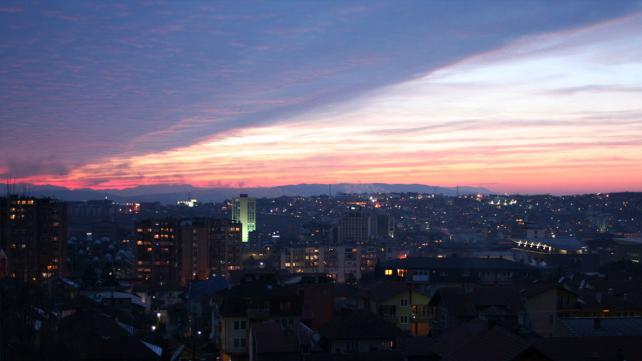
Wait! Hold that remote control!
You may now be willing to flip to the next channel when any news about Kosova comes on television. NATO's bombing of Serbia is over, refugees in nearby camps and shelters are returning to Kosova, and things seem to be getting back to “normal”. You don't have to give your undivided attention to the issue as you may have been doing these past three months or more.
After all you have done your part.
You've prayed, sent in donations, wrote letters, and may have even welcomed and assisted incoming Kosovar refugees in your city.
But the struggle in Kosova is not over.
The independence of Kosova from Serbia has not been achieved. That was one of the main goals of the KLA's liberation struggle. Independence is now the only viable and permanent solution for the mostly Muslim Albanians of Kosova.
We should not be foolish enough to believe the presence of currently 19,000 NATO-led troops in the still Serb province (U.S. Defense Secretary William Cohen says the number of troops will grow to about 50,000) is an indication that things can get back to “normal”, when Kosova was still under Serb control. Nor does it indicate the Kosovars are safe from Serb terrorism.
The current situation can be likened to asking a battered wife to return to her home with her batterer husband still on the loose, but with the police standing outside the door. While the police can protect her for a while, she will not always be safe. The husband will find some way of getting to her. Waiting for police to be caught off-guard, or until they lose interest or the funds to maintain protection for her.
The only way to ensure safety and peace in Kosova, is by granting what almost all Albanians are now in agreement about: independence from Serbia. They can never go back to living with Serbs again, many of them say.
And who can blame them.
The group Physicians for Human Rights recently released a comprehensive survey of abuses committed by Serb forces against Kosovars.
PHR interviewed over 11,400 people from 23 of Kosova's 29 districts who were in refugee camps or centers in Albania and Macedonia in April and May.
The group found that one in every three Kosovars interviewed saw Serb police or soldiers either murdering someone, or the bodies of people they believed were killed by these Serb forces.
Not to mention of course, the rapes and gang-rapes of women, the burnings and destruction of mosques and homes, and the lootings of Albanian houses.
The agreement which ended NATO's bombing of Serbia is not in the interest of Kosovars.
Not only have they been completely left out of this agreement, unlike the now-defunct Rambouillet accords, but the recognition of Kosova's independence has not been included.
Moreover, the Serb-NATO agreement maintains the status quo in Serbian leadership: Slobodan Milosevic, the mastermind of the Kosovar genocide, a war criminal, is still in power.
Two arguments for secession
There are two cases, according to Hurst Hannum, in which the international community should support secession from a nation.
Hannum is a professor of international law at Tufts University. He is also the author of Autonomy, Sovereignty, and Self-Determination: The Accommodation of Conflicting Rights.
In an April article entitled “Fractious spirit haunts nations: Self-Determination or territorial integrity: Clear Guidelines would lessen conflict” (published in the New York Times and the Montreal Gazette March 21, 1999), the first case in which secession should be supported, Hannum says, “occurs when massive, discriminatory human-rights violations, approaching the scale of genocide are being perpetrated.”
He adds that if there is no possibility of a change in the central government's attitude, or if the majority population supports the repression, secession might be the only effective remedy for the oppressed group.
The second case, he argues, is ”if reasonable demands for local self-government or minority rights have been arbitrarily rejected by a central governement-even without accompanying large-scale violence.”
Kosovars have suffered massive human rights violations.
Slobodan Milosevic is still in power. This murderer's political platform has cost the political freedom and lives of 1.2 million Kosovars.
Kosovars once had political autonomy. That was stripped away by Milosevic in 1989.
Let the battle for independence begin.
"Pristina by sunset" by Richtemark - Own work. Licensed under Creative Commons Attribution 3.0 via Wikimedia Commons - http://commons.wikimedia.org/wiki/File:Pristina_by_sunset.JPG#mediaviewer/File:Pristina_by_sunset.JPG

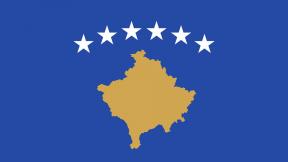
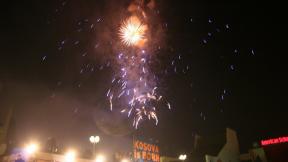

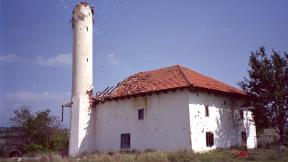
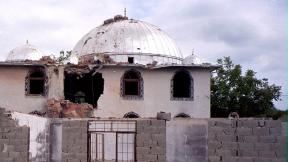


Add new comment